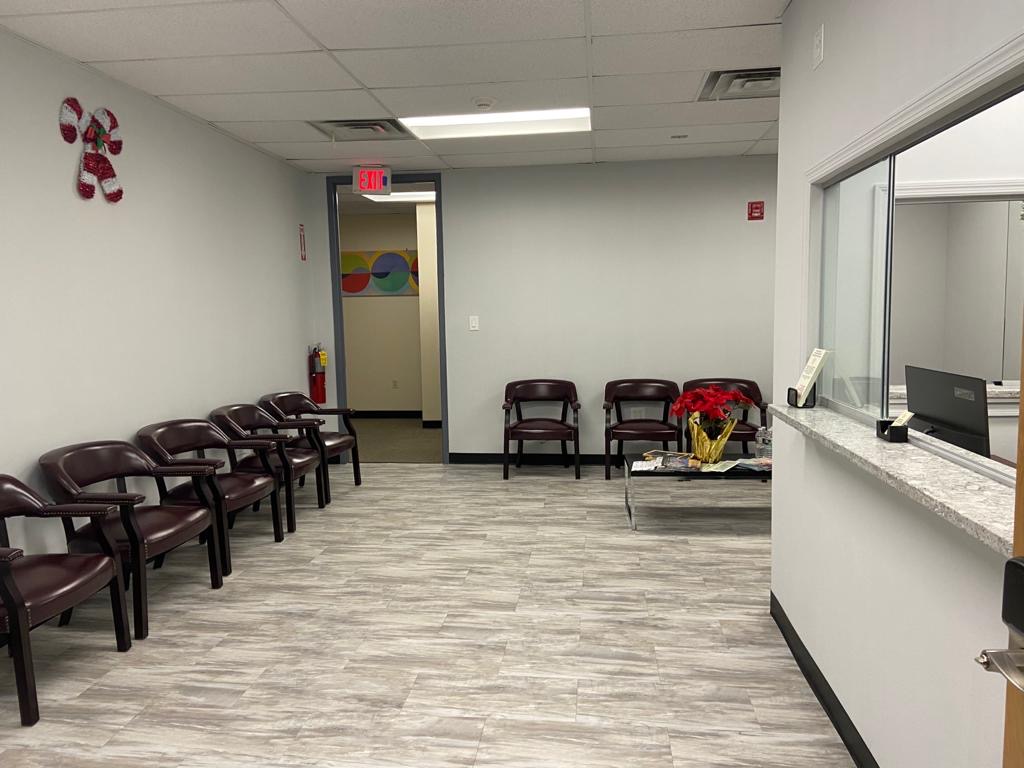About Us
New Jersey Psychotherapy Counseling Center
Is comprised of Adult Mental Health, Child and Adolescent Services. The Center provides an array of care for your family from individual therapy to couples, family or group therapy.
Are you emotionally overwhelmed? Are you having negative, sad, and/or uncomfortable thoughts? Are your friends and family tired of you talking about the same thing over and over again? Many situations, which others may not understand, can cause painful and conflicting feelings in your life. Our therapists can help you find your joy again. Sometimes we need someone to help show us the way. Call today and schedule your first confidential counseling session.

Welcome to NJ Psychotherapy Counseling Center
Conveniently located at 220 Davidson Ave in Somerset, NJ, NJP Counseling Center is a private intensive outpatient psychiatric center that provides traditional psychological and psychiatric care, evaluations, medication monitoring, counseling, and comprehensive care for individuals with behavioral and mental problems.

Mission Statement:
NJP Counseling Center’s mission is to provide the highest quality mental health and addiction care to the widest range of issues and ages. We will benefit the community by providing needed and timely access to services and treatments. We strive to utilize treatments with the best evidence of effectiveness. We will treat all clients with dignity and respect and hold their confidentiality to the highest of standards. Our therapists will be current and comprehensive with treatment, community awareness and clinical education.
We will improve the quality of life for residents of the community by providing the highest quality of mental health and addiction assistance services. These services are available to persons who meet the admission criteria regardless of gender, sexual orientation, race, nationality, religion or any other discriminatory criteria. A basic aspect of our mission involves the provision of these services within a cultural context that is sensitive to the community. Our mission within the community encompasses children, adolescents, adults and the elderly. We also serve as advocates for consumers in obtaining other services not provided by the agency.
What is mental health?
Mental health has to do with how you feel about yourself, how you feel about others, and how you are able to meet and handle the demands of life. It is not the absence of problems. Rather, it describes the ability to balance problems with appropriate coping skills. We know that the right amount of sleep and exercise, a proper diet, appropriate medical care, and caring relationships can go a long way toward improving both our physical and mental health.
What are mental illnesses?
Mental illnesses are diseases that cause mild to severe disturbances in thinking, feeling and behavior. These disturbances may sign)ficantly impair a person’s ability to cope with life’s ordinary demands and routines. Just like physical illnesses, mental illnesses vary greatly by type and severity.
Can mental illnesses be successfully treated?
Yes, depending on the type and severity of the mental illness, a person can learn to cope, improve, or experience a full recovery with proper care and treatment. Recently, there have been sign)ficant advancements in treatments for schizophrenia and clinical depression.
What are the most common types of mental illnesses?
Anxiety disorders are the most common mental illnesses. The three main types are phobias, panic disorders and obsessive-compulsive disorders.
What causes mental illnesses?
Many psychiatric disorders can be linked directly to a biological origin. Others may be emotional or psychological reactions to environmental or social situations. Some of these disorders may be temporary, caused by extreme stress or life changes. Treatment may include medicines, psychotherapies, and social supports.
What is clinical depression?
Clinical depression is marked by intense feelings or thoughts of sadness and despair that lasts more than a few weeks and interrupt functioning in daily life. It is one of the most treatable mental illnesses, but it requires professional treatment with medication, psychotherapy, or a combination of both. As with many illnesses, if treatment is needed, the earlier it begins, the more effective it can be.
If I am being treated for a mental illness, what can I do to help myself?
To make the most of your treatment, form a partnership with your mental health care provider; continue your treatment as recommended (improvement often takes place within six to eight weeks); join a support group; and take good care of yourself by eating well, exercising, and gefflng plenty of rest.
Does stress cause mental illness?
When you are constantly reacting to stressful situations without making adjustments to counter the effects, stress can cause physical, emotional and behavioral disorders that can affect your health, vitality, peace-of-mind, as well as personal and professional relationships. It is estimated that 75-90 percent of visits to primary care physicians are stress related.
How do I get help for a mental illness?
The first step is to talk to your doctor to see if there is any underlying physical cause for your symptoms. If none is found, your doctor may refer you to a mental health specialist. Mental health professionals include psychiatrists, psychologists, counselors and social workers. Psychiatrists and other doctors may prescribe medications to treat mental illness. Most mental health professionals have expertise in psychological and behavioral interventions. For some disorders, medications and psychological treatments work best together.
Does medical insurance cover treatment?
Insurance policies vary greatly, but most private insurance and health maintenance organization (HMO) plans contain some mental health benefits. Unfortunately, many plans do not provide equal treatment for physical and mental illnesses. Contact your health insurance provider for details on your coverage for treatment of mental illnesses.
When I compare my mental health coverage to my physical health coverage, what should I look for
Most often the disparity between mental and physical health coverage occurs in three areas: arbitrary limits on inpatient and outpatient visits; discriminatory copayments limiting affordability of care; and low lifetime and annual caps for people with mental illnesses. These limits often do not provide for enough treatment for people who need long-term care.
Have any states moved to end the disparity between mental and physical health care coverage?
Yes, five states — Maryland, Minnesota, Maine, New Hampshire and Rhode Island — have passed ‘parity” legislation stating that private insurance companies cannot discriminate on health care benefits. The Maryland and Minnesota measures are the best because they apply to all mental and emotional disorders, including those that affect children.
What can I do to improve my insurance coverage for mental illnesses?
Write your state representative about your concerns. Request that he or she support parity for mental illnesses by drafting or endorsing legislation that will end discrimination. Tell your employer or benefits administrator that you support equitable mental health coverage.









